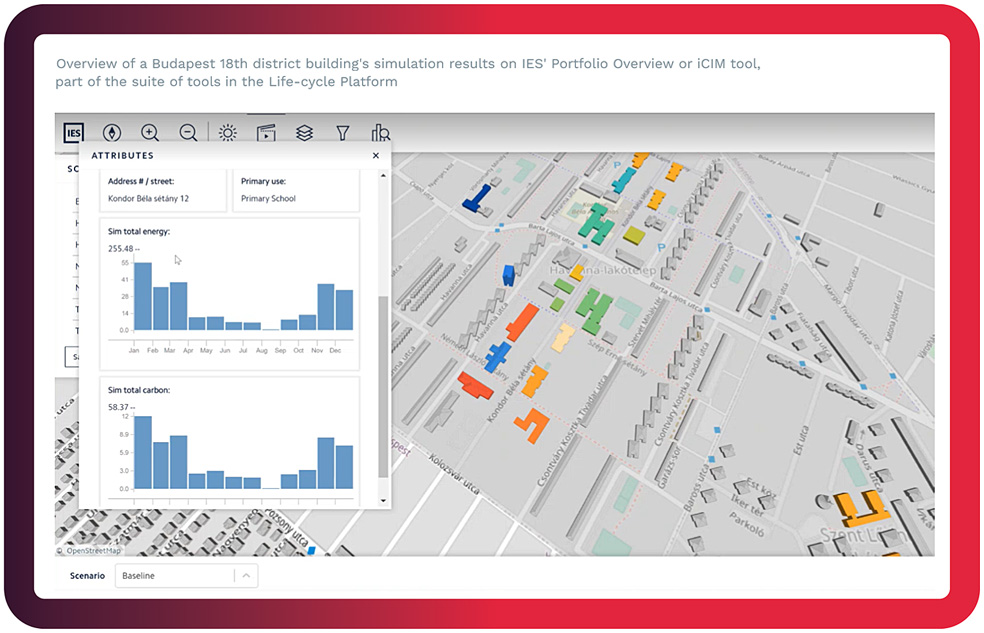Digital Tools
Retrofitting existing buildings for decarbonisation comes with many bottlenecks, including financial issues, difficulties in efficiently managing the different actors and tasks involved, and the need of closing gaps between design assumptions and the performance of the building after the renovation.
To build capacity amongst the actors of the deep renovation value chain and make decarbonisation of existing buildings a reliable, attractive, and sustainable investment, the StepUP EUfunded project has developed a set of innovative digital tools for the efficient management of energy renovation projects and helping renovation managers, building owners and occupants to make informed decisions.
The solutions developed include data-driven models and tools for the implementation of the LEAN methodology in renovation projects, and a range of tools to assess the buildings more in need of renovation and which measures and solutions will have a greater impact. Other results include a management platform to connect the different stakeholders and financing models for the optimisation of energy consumption, comfort, and cost performance over the life of the building.
Data intelligent tools for optimising energy retrofitting
The StepUP project has developed a life-cycle platform to “reduce uncertainties, facilitate the renovation steps and provide a unified place for planning, designing and easing decisions on renovation projects,” says the coordinator of the project from Integrated Environmental Solutions Ltd, Amisha Panchal.
The data intelligence tools include a project management portal where stakeholders can communicate and exchange information amongst themselves, and constitutes a suite of digital tools which can be used to identify the best candidates for deep renovation and assess the best combination of energy conservation measures for a specific building and innovative solutions. The platform allows the selection of the optimal set of energy efficiency measures to optimise both energy savings and investments, considering comfort and indoor conditions.
Assessing the financial viability of deep energy renovations
To tackle financial factors backing the start of renovation projects, the StepUP project is also offering a tool helping users determine whether a proposed investment in an energy renovation scenario makes sense from a financial performance point of view.
The tool, targeted to building owners, either landlords or owner-occupiers, aims to ease the decision-making process and offer guidance and support based on financial data.
"We integrate benefits and cost reductions, such as energy cost savings or increased rent income, as well as cash flows from relevant expenses, to provide users with a relevant output to evaluate the feasibility of the renovation and their return on investment," says Miguel Casas, Senior Financial Consultant at Energinvest.
IT tools to ease the implementation of LEAN construction principles
The concept of LEAN Construction is beginning to spread in the sector, although in renovation projects its introduction has been much more limited. Under the project, a digital tool based on LEAN principles has been designed to identify deviations in real-time, as well as to evaluate the actual impact of the energy renovation solutions.
"We aim to help renovation managers to execute effectively the installation and deployment of industrialised solutions in deep renovation projects," explains María Ibáñez, Head of R&D projects at ACR Grupo. "The tool is accessible through a dashboard and a mobile app that can be used to report and validate the progress of the different works on-site," adds Ibáñez.
The StepUP project addresses the European challenge of achieving the decarbonisation of existing buildings by 2050 in line with the European Union's Renovation Wave initiative. The project is demonstrating the potential of the platform and digital tools in three different pilots across Europe with different renovation needs and characteristics.
StepUP is made up of a consortium of nine partners from seven European countries, including two technology transfer institutions (Eurecat, Unismart), five industrial companies (IES Ltd and IES R&D, Manni Group, ABUD, Energinvest and HeatVentors) and two owners and contractors (ACR and Municipality of 18th District of Budapest).
